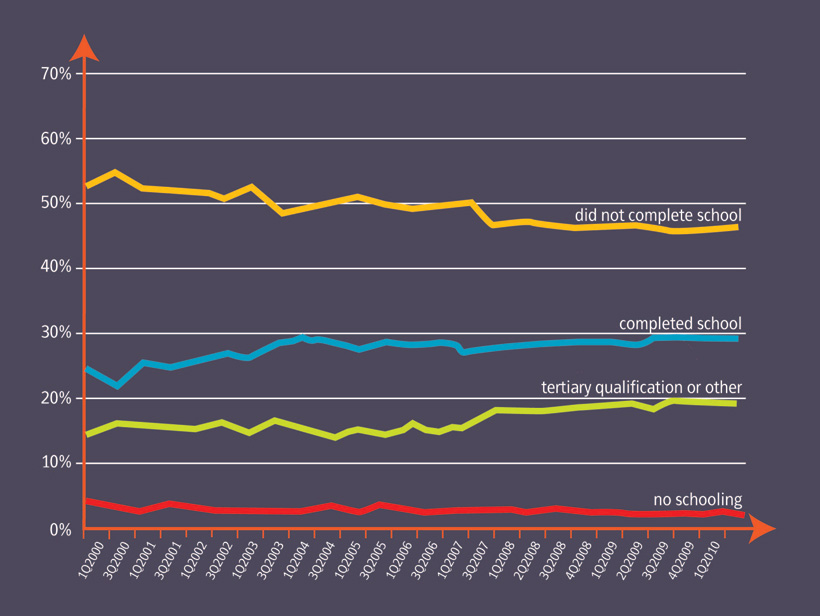
| improving education |
It is clear that education of the workforce is critically important to Gauteng’s future economic performance. Addressing the challenge will not be easy. The figure below shows education levels in Gauteng between 2000 and 2010, for all persons over 25, using data from the Labour Force Survey. The graph indicates steady, although not dramatic improvement. In the third quarter of 2000, 57% of persons over 25 years of age in the province had some education, but had not completed school. By the second quarter of 2010 this had dropped to 46%. The proportion of people who had at least completed school rose from 22% to 32% over the same period, and the percentage with tertiary qualifications increased from 16% to 20%. These are certainly positive trends. But when half of the population over 25 is shown to have either no or inadequate schooling, it is also clear how far the region still has to go before the skills deficit is not a constraint on either investment or on workers being able to access economic opportunities.
|
| attainment in education levels in Gauteng, 2000 to 2010 |
 |
| Quantec (2010) 'Labour Force Survey EasyData download', accessed at http://www.quantec.co.za/ |
Addressing the challenge of skills shortages is one of the priority areas of the Gauteng Provincial Government (GPG) working in partnership with the private sector and education and training institutions. The GPG has various strategies to address the skills challenge. Notable is the establishment of the Gauteng city-region Academy (GCRA), launched to provide training and development interventions. The GCRA offers bursaries to students pursuing a university degree in the following fields of study: engineering, finance, computers, commerce, science, planning and development, travel and tourism, psychology, auditing, transport, chemistry and arts. Furthermore, the GCRA provides bursaries for certificate and diploma students in the following fields: engineering, artisan, finance and business management, computers and IT, travel and tourism, auto repairs and mechanic, millwrights fitting and turning, hospitality and clothing production. |
